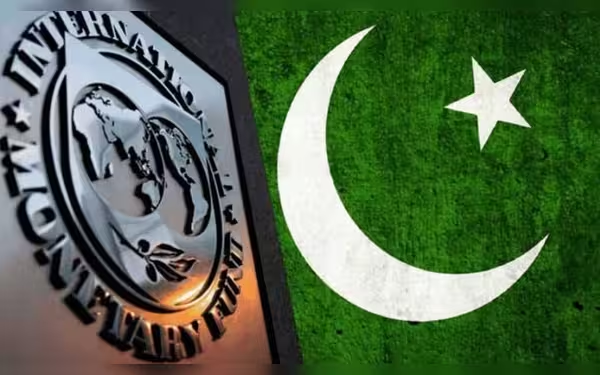Sunday, December 22, 2024 09:22 AM
IMF Gas Supply Reforms Spark Controversy in Pakistan
- Dispute between finance ministry and Petroleum Division escalates.
- IMF conditions threaten industrial electricity supply.
- Government must balance IMF demands with local industry needs.
 Image Credits: tribune.com.pk
Image Credits: tribune.com.pkPakistan faces a dispute over IMF gas supply reforms, impacting industrial electricity and economic stability.
The ongoing economic challenges in Pakistan have led to a contentious situation between the finance ministry and the Petroleum Division regarding the implementation of a crucial condition set by the International Monetary Fund (IMF). This condition requires the country to cut gas supplies to industrial electricity plants by January. The disagreement highlights the difficulties faced in negotiating the $7 billion deal with the IMF, which is essential for stabilizing Pakistan's economy.
During a recent meeting held at the prime minister's house, tensions escalated as the Petroleum Division accused the finance ministry of accepting the IMF's condition without fully addressing its concerns. This revelation raises questions about the negotiation process and the ability of the government to effectively manage its commitments to international financial institutions.
The IMF's requirement to reduce gas supplies is aimed at ensuring that the country can meet its financial obligations and improve its economic standing. However, the implications of such a decision could be significant for the industrial sector, which relies heavily on gas for electricity generation. Cutting supplies may lead to increased production costs and could potentially hamper economic growth.
As the situation unfolds, it is crucial for the government to find a balanced approach that satisfies both the IMF's conditions and the needs of the local industries. Effective communication and collaboration between the finance ministry and the Petroleum Division will be essential in navigating this complex issue.
The dispute over gas reforms not only reflects the challenges of international negotiations but also underscores the importance of strategic planning in economic policy. As Pakistan strives to stabilize its economy, it is imperative that all stakeholders work together to ensure that the decisions made today do not hinder the country's growth in the future. The path forward will require careful consideration and a commitment to finding solutions that benefit both the economy and its citizens.













